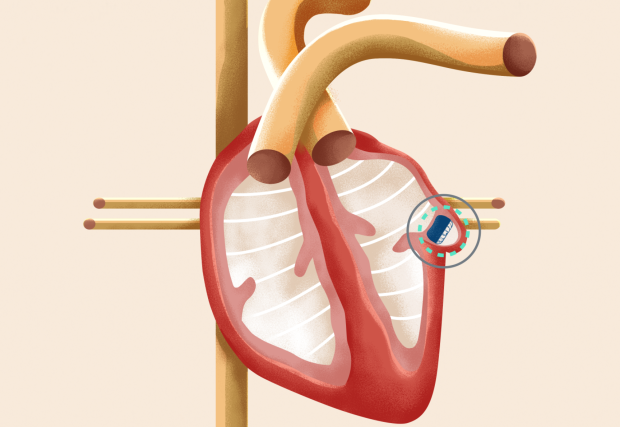Aiken Regional Continues to Advance Cardiac Care with WATCHMAN FLX™ Device

Aiken Regional Medical Centers recently introduced the WATCHMAN FLX™ implant device that reduces risk of stroke for patients with heart conditions. The Boston Scientific WATCHMAN FLX™ implant is a minimally invasive, one-time procedure that reduces stroke risk without the worry that comes with lifelong blood thinners.
Advanced Cardiac Services Are Close to Home
Up to six million Americans are affected by Atrial fibrillation (AFib)¹ – an irregular heartbeat that feels like a quivering heart. People with AFib may be at greater risk for stroke than those with normal heart rhythms. The WATCHMAN FLX™ technology is a small device which has been implanted in more than 150,000 patients worldwide, closes off an area of the heart called the left atrial appendage (LAA) to keep harmful blood clots that can form in the LAA from entering the bloodstream and potentially causing a stroke. The device creates a permanent barrier. By closing off the LAA, the risk of stroke may be reduced and, over time, patients may be able to stop taking blood thinners.
“It is exciting to bring a new, cutting-edge technology to Aiken Regional,” said Christine DeStephan Mills, MD, an interventional cardiologist, with Aiken Regional Medical Centers and Carolina Heart and Vascular Center. “The WATCHMAN is a great option for patients with atrial fibrillation, who cannot take expensive blood thinners. Our team is well-trained, and the field of structural cardiology is here to stay!”
According to Boston Scientific, stroke is the most common complication of AFib, and AFib-related strokes are also more frequently fatal and disabling; a person with AFib is five times more likely to suffer a stroke than someone with a regular heartbeat. Shockingly, 80 percent of strokes are preventable², and further education could save thousands of lives every year.
Dr. DeStephan Mills completed fellowship training in cardiovascular disease and interventional cardiology at the University of Vermont Medical Center in Burlington, Vermont and structural and congenital heart disease at Hackensack University Medical Center in Hackensack, New Jersey. She is certified by the American Board of Internal Medicine and is a member of the American College of Cardiology, American College of Physicians and Society of Cardiovascular Angiography and Interventions.
Named by The Joint Commission and the American Heart Association, Aiken Regional Medical Centers is a Certified Primary Stroke Center and a Primary Heart Attack Center (PHAC) certified hospital. The PHAC certification recognizes the hospital’s dedication to providing superior cardiac care to the Aiken community.
¹Hart RG, Halperin JL., Ann Intern Med. 1999; 131:688–695
²Global Status Report on Noncommunicable Diseases 2010. Geneva, World Health Organization, 2011.
